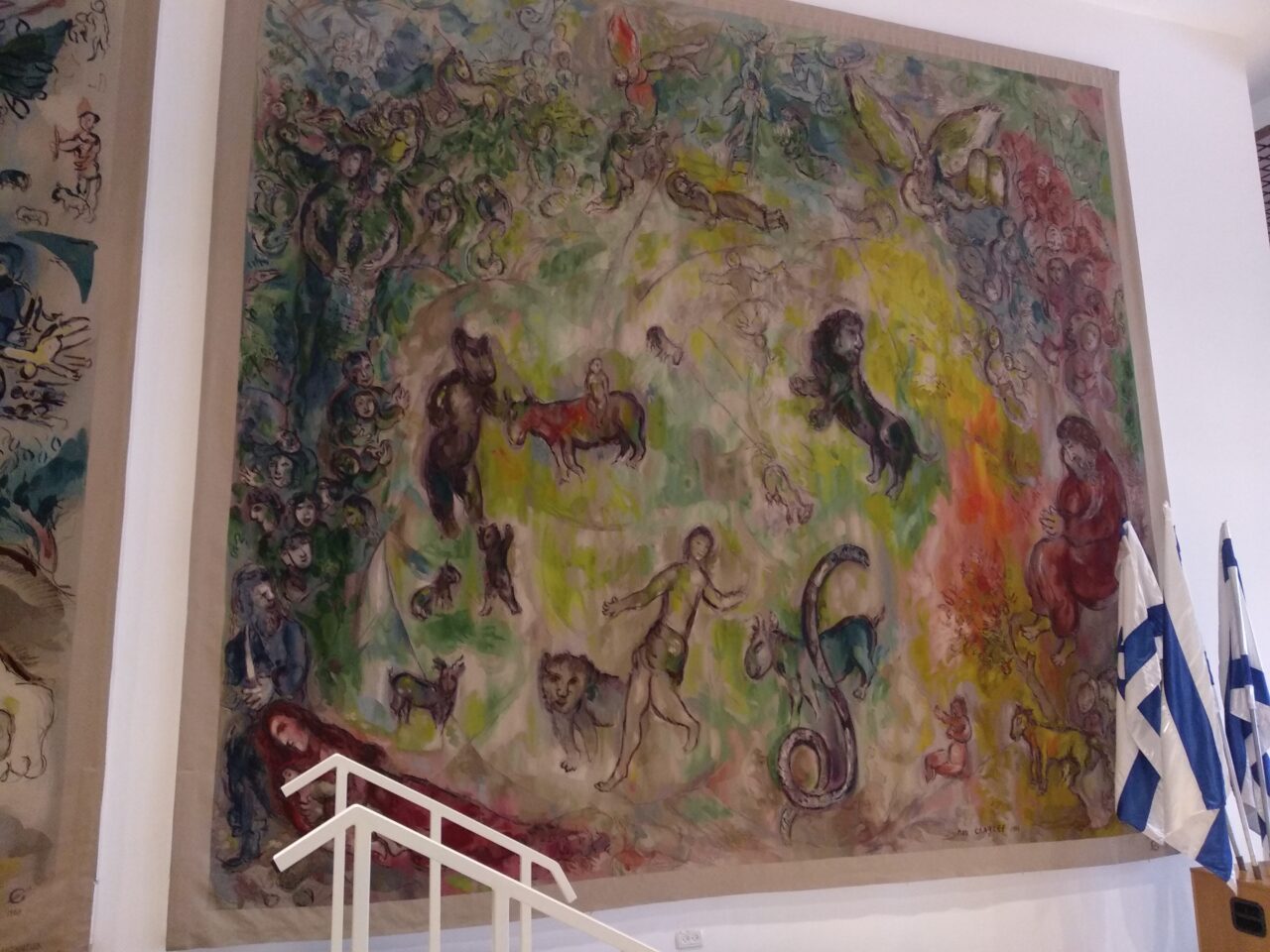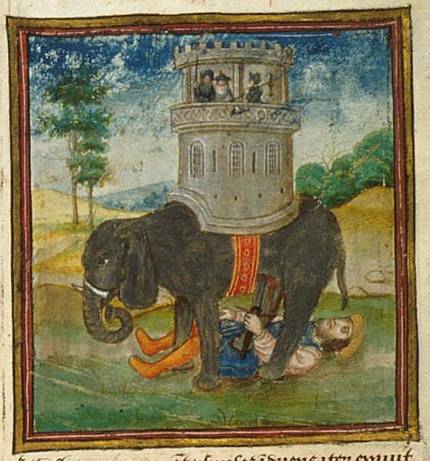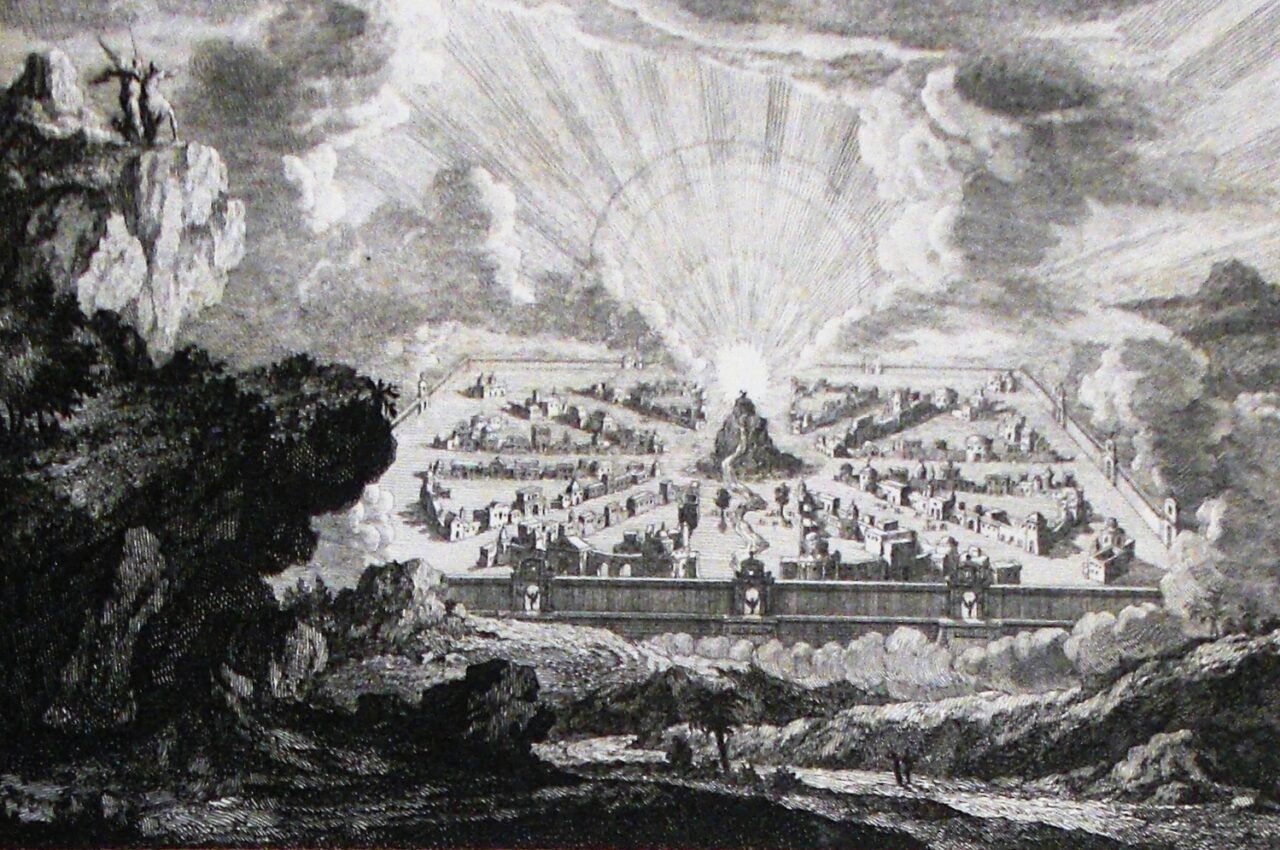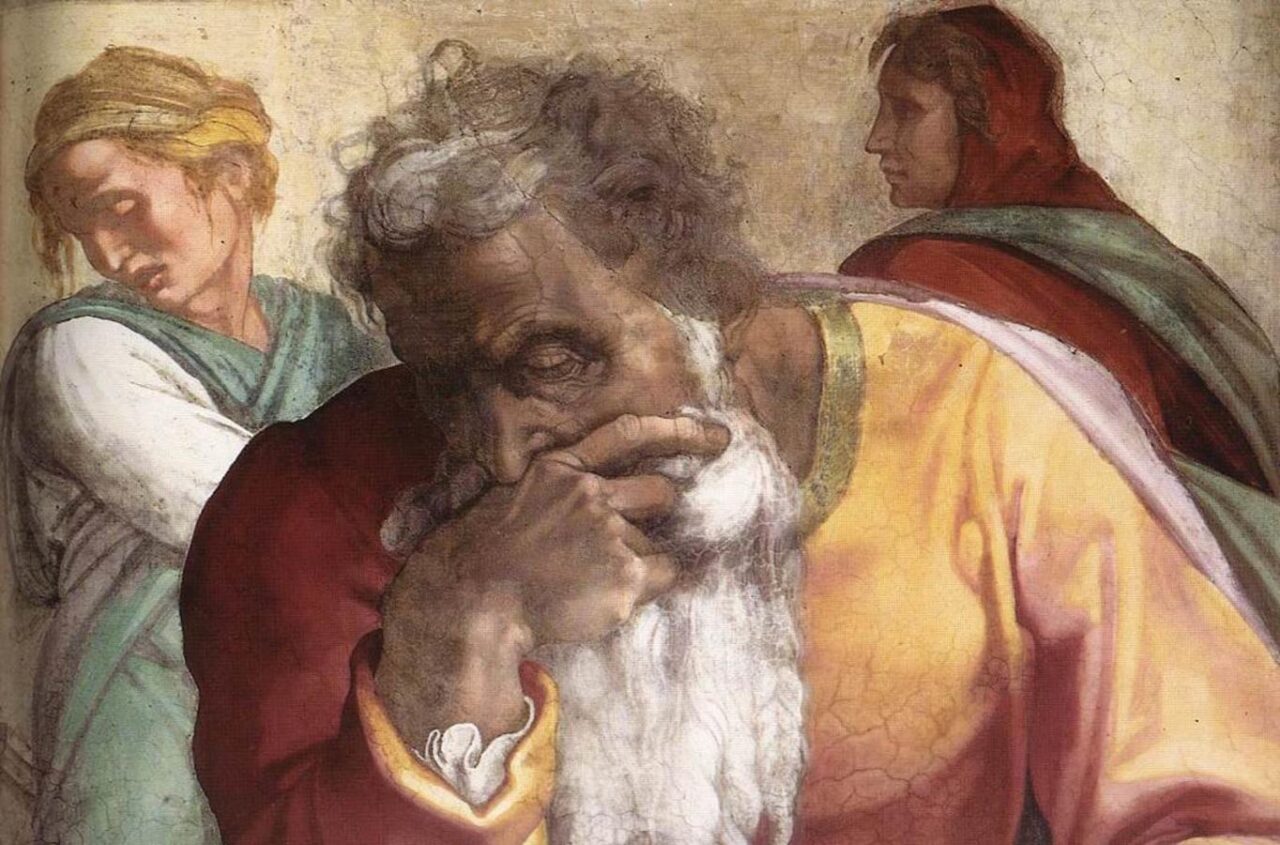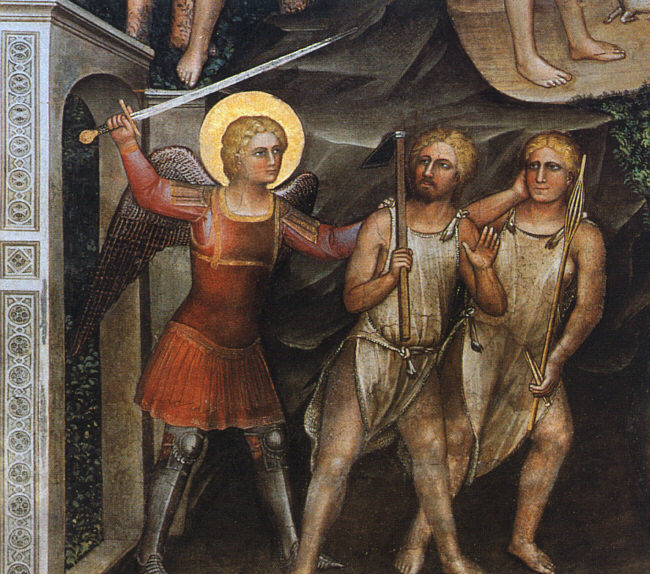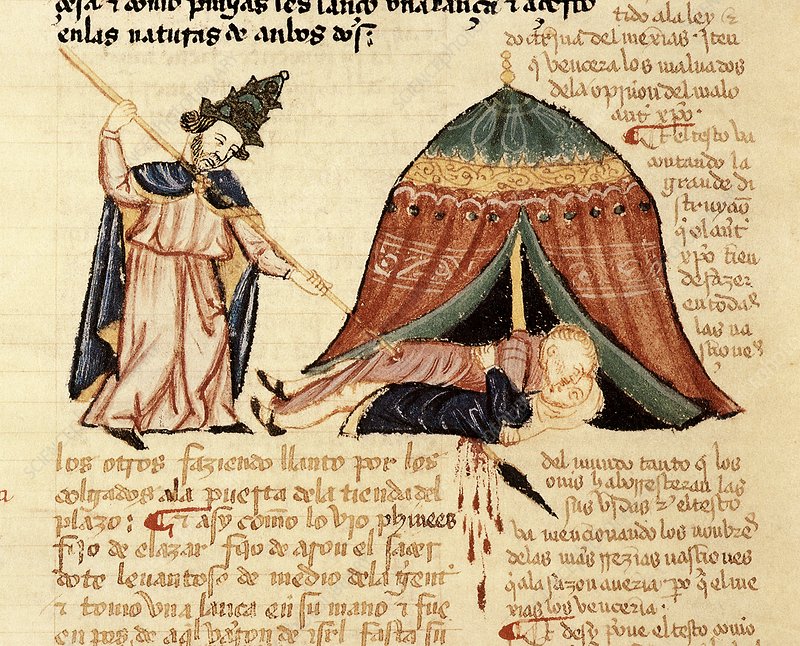Author: Z S
-

Martyrdom in Judaism: Part 2
ZS wrote this two-part overview of Jewish martyrdom in 2018. We post it now with consideration of those who joined the ranks of kedoshim on October 7, 2023. Click here to read Part 1. Rewards in Heaven Jewish traditions hold that martyrs gain access to haolam haba. In the Maccabean martyr story of the seven brothers…
-

Jewish Martyrdom: Part 1
ZS wrote this two-part overview of Jewish martyrdom in 2018. We post it now with consideration of those who joined the ranks of kedoshim on October 7, 2023. The concept of martyrdom within Judaism wrestles with several issues. Martyrdom carries different functions within Judaism, often changing with historical context. Judaism tries to set clear determinations…
-

Parashat Ki Tetzei
This is adapted from a drash Z. S. read last year at Devar Emet Messianic Congregation. A drash is a brief takeaway from the weekly cycle of texts. This Week’s Readings: Torah: Deuteronomy 21:10-25:19 Haftarah: Isaiah 54:1-10 Brit Chadashah: Revelation 21:1-4 I recently spoke with a friend in Israel about some issues surrounding the aliyah process, and how…
-

A History of Interpreting Genesis 6:1-4 (Part II)
וַֽיְהִי֙ כִּֽי־הֵחֵ֣ל הָֽאָדָ֔ם לָרֹ֖ב עַל־פְּנֵ֣י הָֽאֲדָמָ֑ה וּבָנ֖וֹת יֻלְּד֥וּ לָהֶֽם׃ וַיִּרְא֤וּ בְנֵי־הָֽאֱלֹהִים֙ אֶת־בְּנ֣וֹת הָֽאָדָ֔ם כִּ֥י טֹבֹ֖ת הֵ֑נָּה וַיִּקְח֤וּ לָהֶם֙ נָשִׁ֔ים מִכֹּ֖ל אֲשֶׁ֥ר בָּחָֽרוּ׃ וַיֹּ֣אמֶר יְהֹוָ֗ה לֹֽא־יָד֨וֹן רוּחִ֤י בָֽאָדָם֙ לְעֹלָ֔ם בְּשַׁגַּ֖ם ה֣וּא בָשָׂ֑ר וְהָי֣וּ יָמָ֔יו מֵאָ֥ה וְעֶשְׂרִ֖ים שָׁנָֽה׃ הַנְּפִלִ֞ים הָי֣וּ בָאָ֘רֶץ֮ בַּיָּמִ֣ים הָהֵם֒ וְגַ֣ם אַֽחֲרֵי־כֵ֗ן אֲשֶׁ֨ר יָבֹ֜אוּ בְּנֵ֤י הָֽאֱלֹהִים֙ אֶל־בְּנ֣וֹת הָֽאָדָ֔ם וְיָלְד֖וּ לָהֶ֑ם הֵ֧מָּה הַגִּבֹּרִ֛ים אֲשֶׁ֥ר מֵעוֹלָ֖ם…
-

A History of Interpreting Genesis 6:1-4 (Part I)
וַֽיְהִי֙ כִּֽי־הֵחֵ֣ל הָֽאָדָ֔ם לָרֹ֖ב עַל־פְּנֵ֣י הָֽאֲדָמָ֑ה וּבָנ֖וֹת יֻלְּד֥וּ לָהֶֽם׃ וַיִּרְא֤וּ בְנֵי־הָֽאֱלֹהִים֙ אֶת־בְּנ֣וֹת הָֽאָדָ֔ם כִּ֥י טֹבֹ֖ת הֵ֑נָּה וַיִּקְח֤וּ לָהֶם֙ נָשִׁ֔ים מִכֹּ֖ל אֲשֶׁ֥ר בָּחָֽרוּ׃ וַיֹּ֣אמֶר יְהֹוָ֗ה לֹֽא־יָד֨וֹן רוּחִ֤י בָֽאָדָם֙ לְעֹלָ֔ם בְּשַׁגַּ֖ם ה֣וּא בָשָׂ֑ר וְהָי֣וּ יָמָ֔יו מֵאָ֥ה וְעֶשְׂרִ֖ים שָׁנָֽה׃ הַנְּפִלִ֞ים הָי֣וּ בָאָ֘רֶץ֮ בַּיָּמִ֣ים הָהֵם֒ וְגַ֣ם אַֽחֲרֵי־כֵ֗ן אֲשֶׁ֨ר יָבֹ֜אוּ בְּנֵ֤י הָֽאֱלֹהִים֙ אֶל־בְּנ֣וֹת הָֽאָדָ֔ם וְיָלְד֖וּ לָהֶ֑ם הֵ֧מָּה הַגִּבֹּרִ֛ים אֲשֶׁ֥ר מֵעוֹלָ֖ם…
-

Surveying the Wondrous Cross
Like the prophet in Isaiah 6, the hymn “When I Survey the Wondrous Cross” vacillates between describing the awe of beholding God and reflecting on our own changed state: When I survey the wondrous cross on which the Prince of glory died, my richest gain I count but loss, and pour contempt on all my…
-

Chaplaincy: Prophets
Before moving on to an examination of the early history of the chaplaincy, I want to make one more observation. Mr. Daniel Sutkowski and I recently held a conversation comparing the prophets of the Bible with the chaplains we see on television who, say, give a prayer before a national ceremony. As with the Levites…
-

Critique: “When God Abandoned the Garden of Eden” by Raanan Eichler
In my last article, I summarized Raanan Eichler’s essay, in which he proposes a new reading of Genesis 3:24. Here, I offer a critique of his argument. Eichler uncovers a fascinating textual tradition of Genesis 3:24, one attested by four targumim. God’s presence outside Eden is implied throughout the Torah, but this verse provides an…
-

“When God Abandoned the Garden of Eden” by Raanan Eichler
Today, I want to offer a summary of an essay by Raanan Eichler, a member of the excellent Bible faculty at Bar-Ilan University. [1] In my next article, I will give my opinion on Eichler’s proposal. Raanan Eichler reconstructs a targumic tradition that attests a pronunciation different from וַיַּשְׁכֵּן (the masoretic niqqudim in Genesis 3:24). He uncovers…
-

Chaplaincy: Levites
Strictly speaking, chaplaincy began in the pagan world and in all likelihood was brought into Christianity by Roman Christian patrons; this early history shall be explored in a future article. That said, we can examine two analogous examples from the Bible: the unnamed Levite from Judges 17-18 and Pinchas (also known as Phinehas) from Numbers…

